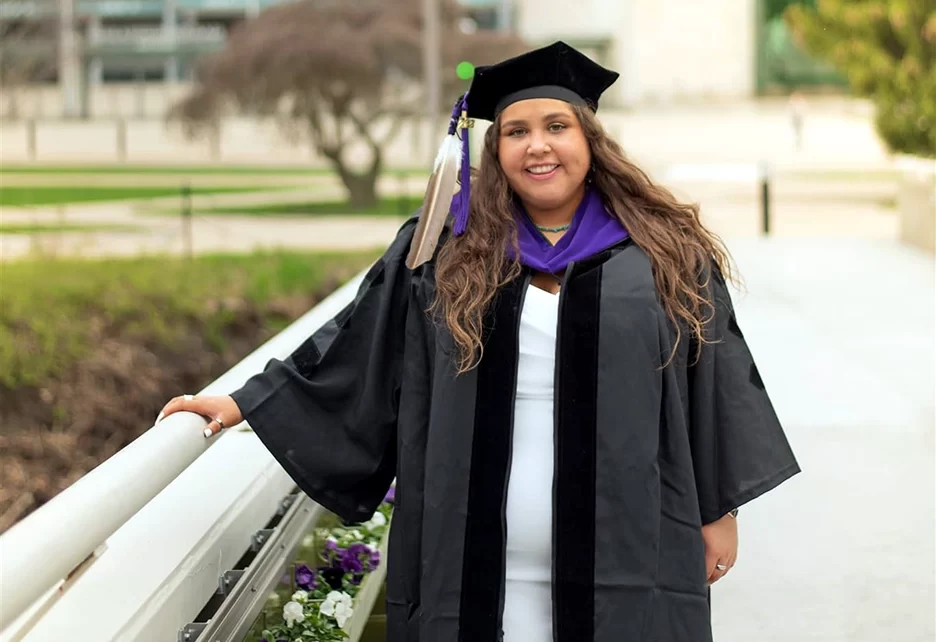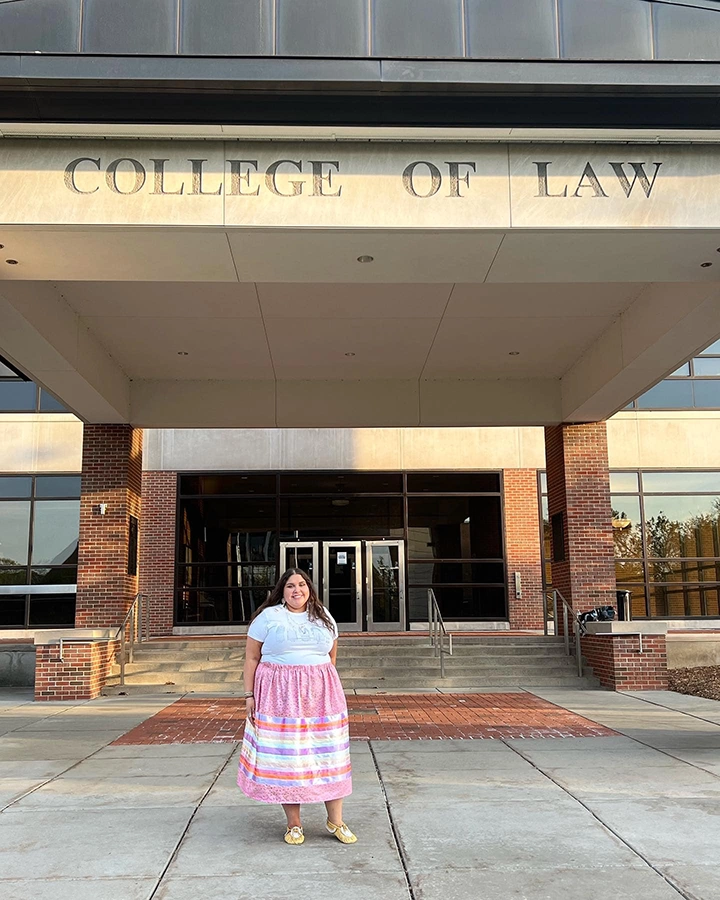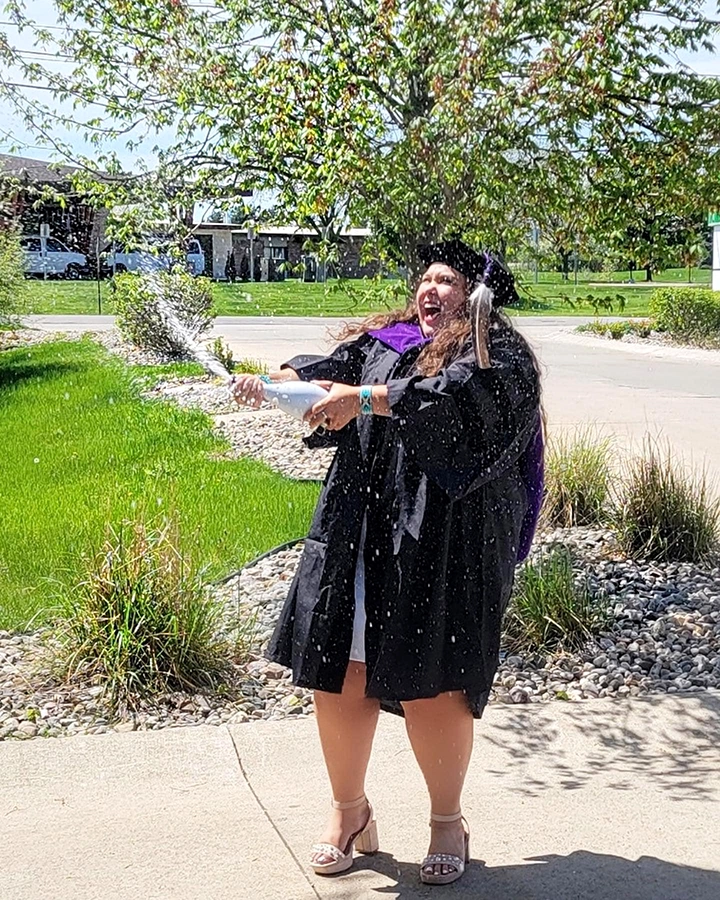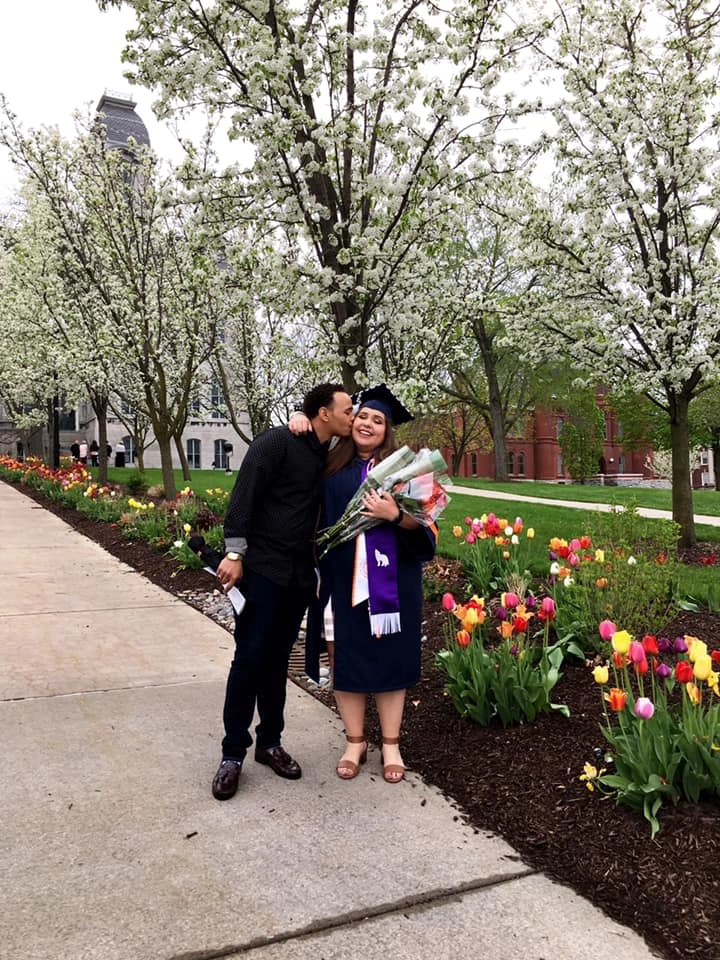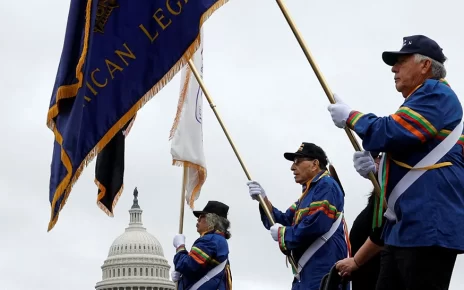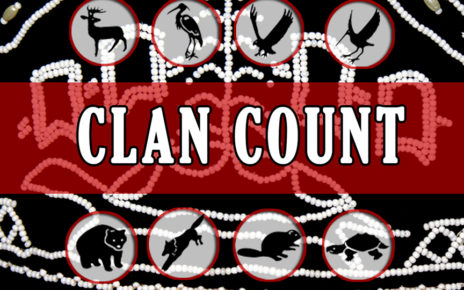By Tami Watt, Newsletter Editor

Alyana Jimerson (Seneca, Wolf Clan) passed the New York bar exam this past July and is certified to practice law!
Alyana earned her juris doctor from Michigan State University College of Law after graduating from Syracuse University in 2018 with a Bachelor’s Degree in Indigenous Studies. Alyana grew up in Steamburg, NY and is the daughter of Shannon and Dustin George and Jared John. She graduated from the Randolph Central School District and was accepted under the Haudenosaunee Promise scholarship at Syracuse University. Attending Syracuse was an easy choice, it was close to home and already had a growing Indigenous student body from Hodinöhsö:ni’ territories.
During the summer of her junior year at Syracuse, Alyana returned to Allegany Territory and interned in the Seneca Nation Council Office under the Vision 20/20 Program that employs school aged teens and young college adults during summer breaks. She had not declared her major yet but was nearing graduation the next year. The Seneca Nation Council Office invited the Vision 20/20 interns to Washington D.C. to meet individuals they work with on Capitol Hill. She was able to meet with lawyers, State Representatives and engage with individuals that inspired her to major in Indigenous Studies and head to law school.
Alyana always knew she wanted to give back to her community and she finally found the avenue that fit her goals, Indian Law. Applying to law school was no easy feat, although overwhelming, Alyana navigated a path not taken by many Indigenous students. Native American lawyers have systemically been excluded in full participation in the legal profession. Although there are initiatives towards diverse issues and social justice campaigns, Indigenous issues, specifically, are not on the forefront. The demographic percentage of Indigenous lawyers is only .05%, the lowest of all ethnicities. Indigenous people only make up 1.3% of the general population. Our numbers are low but legal battles that many Nations face have huge impacts on land, rights and the future of the next seven generations. We have a lot at stake.
Alyana, a first-generation college student, overcame many barriers Native students face when applying for law school; financing (application fees, LSAT fees, tuition, room and board), scouting the best law schools, navigating the application process, knowing how to prepare to be successful in law school and forming connections necessary to extract information and resources, part of the gatekeeping process that favors the elite and privileged upbringings. Her challenges did not hinder her experience nor her positive outlook. One of the life lessons she took away from law school is that it’s okay to be vulnerable and ask for help. Being open, leaning on others and accepting help guided her through her most difficult times. Being away from her support system and close-knit community was tough but the encouragement from her fellow law students (many of whom were in the same boat), significant other and her grandmother helped with her mental well-being and focus. She became involved in the Native American Law Student Association (NALSA) and encouraged many other non-native students to become active in the organization. With all the challenges facing Indian Country, the more hands on deck, the better.
Alyana’s dream is to work at the federal level of Indian Law to make the most impact across Turtle Island but is actively seeking work for a firm to gain experience and narrow down which type of law she wants to champion. Working for the Seneca Nation legal team also weighs on her, her end goal is to work toward the betterment of Seneca people. Growing up on the Allegany Territory has shaped Alyana’s perception of community, herself and her work. “Senecas are such a strong Nation, we are strong people. Growing up and hearing that my whole life at home and then hearing that out again in Indian Country definitely shaped who I am and gave me the confidence I needed. Growing up on territory also gave me insight and understanding of the challenges we face as Native people with our Treaties, land and rights,” explains Alyana.
Alyana credits the Seneca Nation’s Vision 20/20 program for the huge impact it had on her and encourages all Seneca youth to get involved. Not only was she a participant, Alyana became the coordinator of the program and continues to support Seneca youth. She stays in the know concerning higher education opportunities, engages with former participants and has been a reference for college and work. Her goal is to make the road to higher education and law school less intimidating and share knowledge of the many opportunities out there for Indigenous youth.

